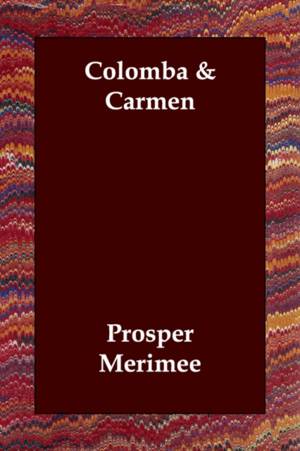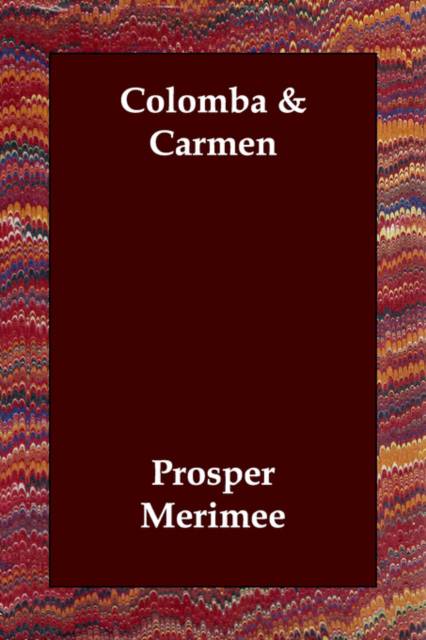
- Afhalen na 1 uur in een winkel met voorraad
- Gratis thuislevering in België vanaf € 30
- Ruim aanbod met 7 miljoen producten
- Afhalen na 1 uur in een winkel met voorraad
- Gratis thuislevering in België vanaf € 30
- Ruim aanbod met 7 miljoen producten
Zoeken
Omschrijving
Prosper Merimee (1893-70) was a French writer of the Romanticism movement, and one of the pioneers of the novella, a short novel or long short story. He was also a noted archaeologist and historian, and an important figure in the history of architectural preservation. His best-known work is the novella Carmen, first published in 1845, which became the basis of Bizet's opera of the same name. Carmen was preceded by two other famous novellas, La Venus d'Ille (1837), and Colomba which first appeared in the Revue des Deux Mondes on 1 July 1840 and was then published as a single volume in 1841. Through the lens of historical fiction, this latter novella examines the Corsican vendetta. In the story Orso must consider whether to avenge the death of his father, apparently perpetrated by the Barricini family. Orso's love interest, the Englishwoman Lydia Nevil, attempts to dissuade him from murder whilst his sister, Colomba, uses all her cunning to ensure the opposite result. The novella Carmen was inspired by a story Merimee was told by the Countess of Montijo on his visit to Spain in 1830. His decision to make his heroine a gypsy was based on his interest in the subject, and he later translated Pushkin's The Gypsies (1824) into French prose. Carmen comprises four parts, only the first three of which appeared on original publication in the 1 October 1845 edition of the Revue des Deux Mondes, with the fourth included in the book publication in 1846. Merimee narrates the story as if it had actually happened to him on his trip to Spain in 1830. In Part I the author meets the supposedly dangerous robber, Don Jose Navarro, who he allows to escape, and in Part II he makes the acquaintance of Carmen, a beautiful Romany woman. Whilst she is telling his fortune they are interrupted by Don Jose who escorts the author away. Some months later the author learns Don Jose is to be garrotted the next day and visits him in prison. In Part III the robber's true identity is revealed, and the story of how he met Carmen, then working in a cigar factory, and the misfortunes resulting from their association. Part IV consists of scholarly remarks on Romany history, customs, and language. This edition includes English translations of both Colomba and Carmen by Lady Mary Loyd (1853-1936).
Specificaties
Betrokkenen
- Auteur(s):
- Vertaler(s):
- Uitgeverij:
Inhoud
- Aantal bladzijden:
- 152
- Taal:
- Engels
Eigenschappen
- Productcode (EAN):
- 9781406803532
- Verschijningsdatum:
- 22/08/2006
- Uitvoering:
- Paperback
- Formaat:
- Trade paperback (VS)
- Afmetingen:
- 152 mm x 229 mm
- Gewicht:
- 231 g

Alleen bij Standaard Boekhandel
+ 22 punten op je klantenkaart van Standaard Boekhandel
Beoordelingen
We publiceren alleen reviews die voldoen aan de voorwaarden voor reviews. Bekijk onze voorwaarden voor reviews.








